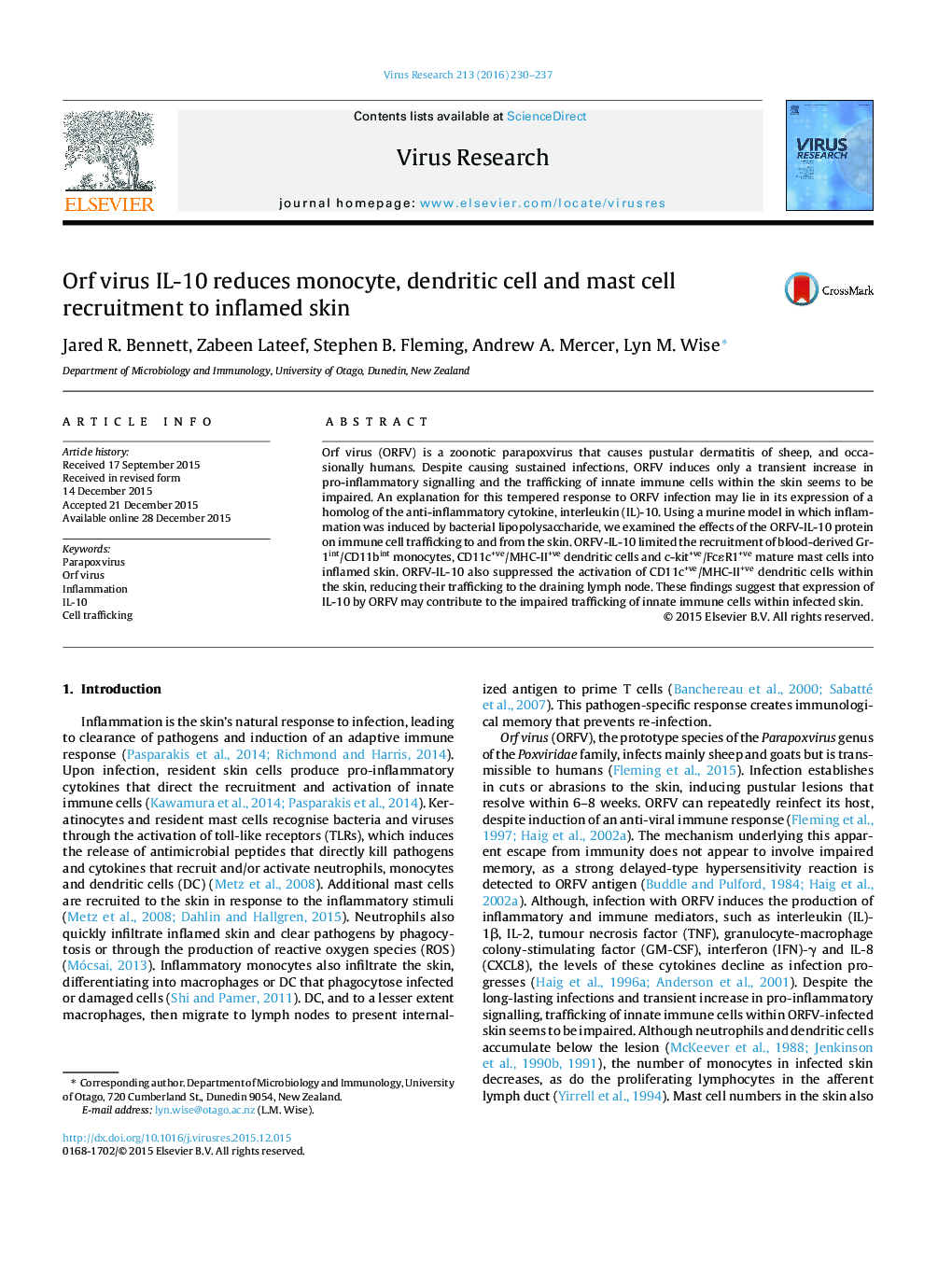| Article ID | Journal | Published Year | Pages | File Type |
|---|---|---|---|---|
| 3427914 | Virus Research | 2016 | 8 Pages |
•Orf virus IL-10 prevents monocyte and dendritic cell recruitment into inflamed skin.•Orf virus IL-10 limits the recruitment of mature mast cells into inflamed skin.•Orf virus IL-10 suppresses the activation of dendritic cells within the skin.•Orf virus IL-10 reduces dendritic cell trafficking to the skin-draining lymph node.
Orf virus (ORFV) is a zoonotic parapoxvirus that causes pustular dermatitis of sheep, and occasionally humans. Despite causing sustained infections, ORFV induces only a transient increase in pro-inflammatory signalling and the trafficking of innate immune cells within the skin seems to be impaired. An explanation for this tempered response to ORFV infection may lie in its expression of a homolog of the anti-inflammatory cytokine, interleukin (IL)-10. Using a murine model in which inflammation was induced by bacterial lipopolysaccharide, we examined the effects of the ORFV-IL-10 protein on immune cell trafficking to and from the skin. ORFV-IL-10 limited the recruitment of blood-derived Gr-1int/CD11bint monocytes, CD11c+ve/MHC-II+ve dendritic cells and c-kit+ve/FcεR1+ve mature mast cells into inflamed skin. ORFV-IL-10 also suppressed the activation of CD11c+ve/MHC-II+ve dendritic cells within the skin, reducing their trafficking to the draining lymph node. These findings suggest that expression of IL-10 by ORFV may contribute to the impaired trafficking of innate immune cells within infected skin.
Graphical abstractFigure optionsDownload full-size imageDownload as PowerPoint slide
